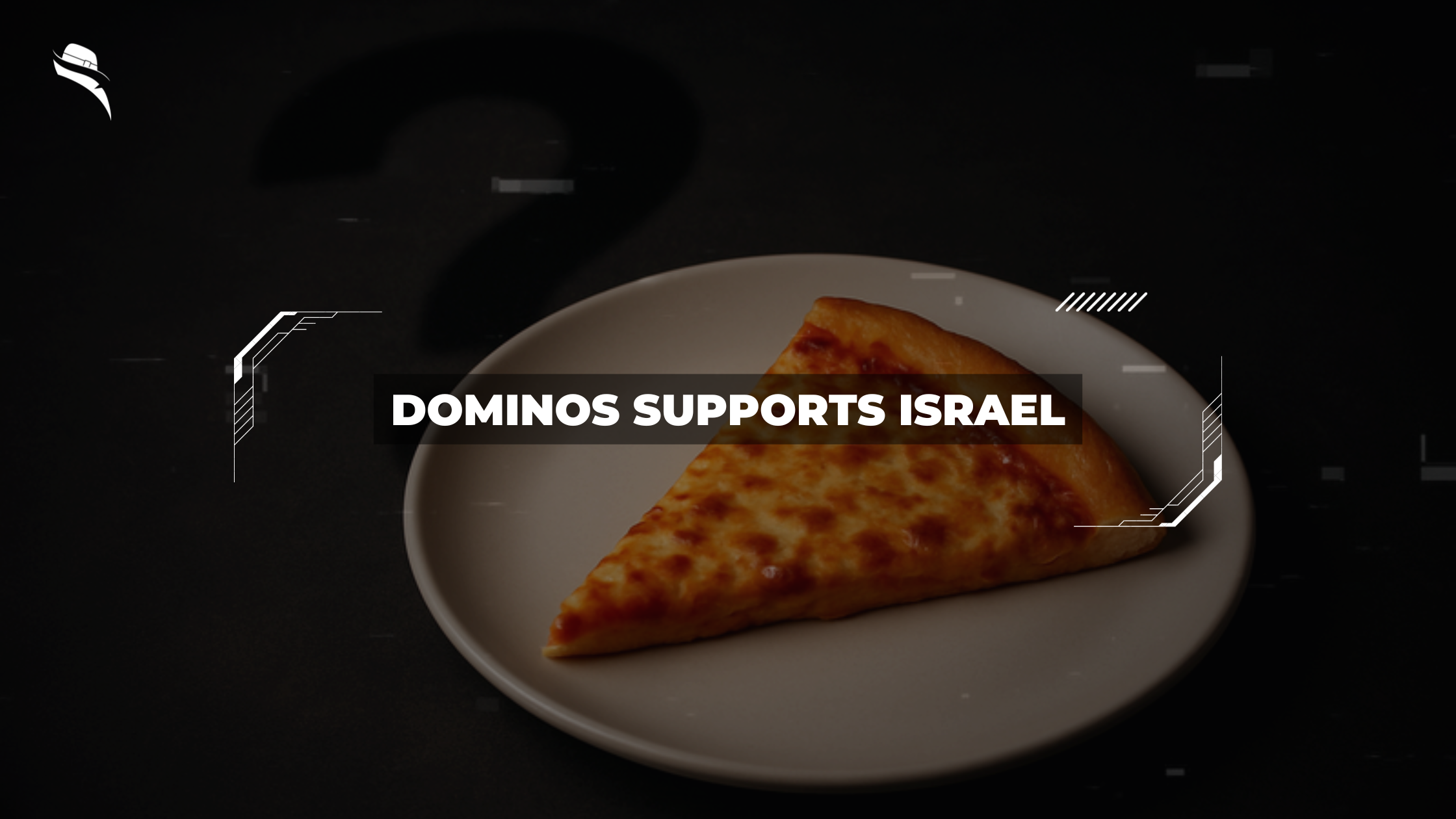Questions about whether Dominos supports Israel have emerged amid increasing scrutiny of global brands’ political affiliations. Since 1990, Domino’s Pizza has maintained a significant presence in Israel, currently operating over 30 locations across the country. The pizza giant has expanded considerably in the region, with some sources indicating more than 60 outlets throughout Israel.
Initially entering the Israeli market in the early 1990s, Dominos experienced a major restructuring in 2003 after the bankruptcy of master franchisee Omni Food Products. Subsequently, the franchise was sold to Asaf Greenberg and two main franchise owners, a move that strengthened Domino’s operations in Israel. Despite its substantial presence, Domino’s has not made public statements regarding the Israel-Palestine conflict, although this hasn’t prevented controversy. Additionally, the Australia-based operator of Domino’s locations in certain regions has suggested that sales challenges in Asia were partially due to consumer rejection of U.S. brands because of the Israel-Palestine crisis.
Understanding Dominos Franchise in Israel
The franchise model forms the backbone of how Domino’s operates in Israel. This business arrangement allows the global pizza chain to expand internationally while adapting to local markets. To understand the relationship between Domino’s and Israel, one must first grasp how the franchise system functions in this specific region.
Ownership and management of Dominos Israel
The management structure of Domino’s Israel differs notably from the parent company. After the 2003 restructuring, the franchise rights were transferred to local businessman Asaf Greenberg alongside two major franchise owners. This transition marked a significant shift in how the brand operated within the country. Under this arrangement, local entrepreneurs oversee day-to-day operations while maintaining the brand standards established by Domino’s Pizza International.
These local franchisees handle everything from supply chain management to marketing initiatives. Furthermore, they make critical decisions regarding store locations, hiring practices, and customer service protocols. This localized approach allows the brand to respond effectively to regional preferences while maintaining global quality standards.
Franchise rights and local autonomy
The franchise agreement between Domino’s Pizza International and Israeli operators grants considerable autonomy to local franchisees. This independence enables them to adapt their business practices to align with Israeli market conditions. Consequently, local owners can determine pricing strategies, promotional campaigns, and even certain menu modifications.
Nevertheless, this autonomy comes with specific limitations. The parent company typically maintains strict control over core brand elements, including the logo, primary menu items, and fundamental operating procedures. In fact, franchisees must adhere to detailed operating manuals that cover everything from food preparation to store design.
Dominos Israel vs Dominos Global
While Domino’s Israel follows global brand guidelines, several distinctions set it apart from its international counterparts. Most significantly, the Israeli branches operate with greater independence regarding menu customization to accommodate local tastes and dietary preferences.
Another key difference involves the financial relationship. Unlike corporate-owned locations, Israeli franchisees pay royalty fees to Domino’s Pizza International while retaining their operational profits. This arrangement creates a scenario where the parent company benefits from brand expansion without directly profiting from or controlling the political positions of individual franchises.
This separation occasionally creates confusion among consumers about whether purchasing from Domino’s Israel directly supports Domino’s global operations. In reality, the financial connection primarily consists of licensing fees rather than direct profit sharing.
Economic and Cultural Integration in Israel
Beyond franchise agreements, Domino’s has woven itself into Israel’s economic and cultural fabric through strategic adaptations and local investments. The pizza chain’s integration reflects both business savvy and cultural sensitivity.
Job creation and local employment
With over 50 branches across Israel, Domino’s has created a significant employment footprint in the country. The brand’s expansion has generated numerous jobs throughout its supply chain, from restaurant staff to delivery personnel. By sourcing ingredients locally and employing residents, the company contributes substantially to Israel’s economic growth. This localized employment model helps the brand maintain its position as a major player in Israel’s competitive fast-food market.
Adaptation to Israeli dietary laws
Domino’s success in Israel stems partly from its willingness to adapt to kosher dietary restrictions. Many locations operate according to Jewish dietary laws, carefully avoiding combinations of meat and dairy products. Moreover, in 2013, the chain made history as the first in the global Domino’s network to offer vegan pizza topped with non-dairy cheese. This innovation came after a Facebook campaign by Vegan Friendly, representing a community of approximately 30,000 Israeli vegans.
Cultural relevance of menu offerings
The menu at Domino’s Israel distinctly reflects local tastes and preferences. Special regional offerings include Za’atar and Mediterranean pizzas that specifically cater to Israeli palates. Furthermore, the introduction of gluten-free and whole-wheat crusts aligns with growing health consciousness among Israeli consumers. As a result, the brand sold over half a million vegan pizzas in a single year, demonstrating the effectiveness of these cultural adaptations.
Partnerships with local tech companies
Domino’s Israel has embraced the country’s reputation as a tech hub. The company has implemented innovative ordering systems, including a sophisticated delivery app. Additionally, Domino’s has experimented with robot deliveries, showcasing how international companies can effectively leverage Israel’s technological capabilities. These tech partnerships demonstrate how the brand utilizes local expertise while enhancing customer experience.
The Debate: Is Dominos Pro-Israel?
The controversy surrounding Domino’s perceived position on Israel stems from complex factors rather than explicit political statements. This debate highlights how corporate presence can be interpreted as political alignment.
Why do some believe Dominos supports Israel
Perceptions about Domino’s supporting Israel often arise from the company’s continued operations throughout the country. The chain’s significant presence with multiple locations across Israel leads some consumers to view this business activity as implicit support. Additionally, the long-standing operation since 1990 creates an impression of commitment to the Israeli market regardless of regional tensions.
Dominos silence and neutrality policy
Unlike some corporations that make explicit political statements, Domino’s has generally maintained a policy of silence on contentious political issues. This corporate neutrality extends to the Israel-Palestine conflict, where the company has refrained from public commentary. However, this silence itself becomes interpreted differently by various stakeholders – some view it as tacit approval, others as appropriate business conduct.
How franchise operations blur political lines
The franchise structure fundamentally complicates political attributions. As outlined previously, local franchisees operate with significant autonomy from the parent company. This separation creates a situation where local business decisions don’t necessarily reflect corporate political positions. Even so, many consumers don’t differentiate between local franchisees and the global brand, attributing local actions to the corporation’s stance. This confusion frequently leads to simplified narratives about corporate political alignment that overlook the nuanced business relationships involved.
Global Backlash and Brand Challenges
Boycott campaigns have increasingly targeted American brands perceived as supporting Israel, with Domino’s feeling substantial economic repercussions worldwide.
Boycott movements and their impact
The Boycott, Divestment, and Sanctions (BDS) movement has specifically included Domino’s among its “grassroots organic boycott targets,” citing allegations that the company provided free meals to the Israeli military during operations in Gaza. These accusations spread rapidly through social media platforms, turning consumer sentiment against the brand in certain regions.
Sales decline in Muslim-majority countries
The financial consequences have been severe. Dominos Pizza Enterprises, which operates franchises across Australia, Europe, and Asia, reported an annual loss of 3.7 million Australian dollars (USD 2.40 million) in June 2025, marking a dramatic 104% year-on-year decline. Following this announcement, the company’s shares plummeted 23% in just two days. Throughout Asia, particularly Malaysia, same-store sales fell by 8.9% in late 2023, with the company’s managing director explicitly attributing this to consumers associating American brands with U.S. support for Israel.
Comparison with other U.S. brands like McDonald’s and Starbucks
Domino’s is not alone in facing such challenges. McDonald’s reported sales growth of merely 0.7% in the Middle East, China, and India—significantly below its 5.5% target. Similarly, Starbucks acknowledged a “significant impact on traffic and sales” across Middle Eastern markets, eventually cutting 2,000 jobs in the region. Local alternatives have thrived amid these boycotts, including Egyptian soda brand Spiro Spathis.
This article is part of our in-depth series on companies linked to Israel. For the full breakdown, see our main report: Food Companies That Support Israel
Final Thoughts
Examining the financial data reveals the tangible impact of global political perceptions on Domino’s business operations. The Australian franchiser of Domino’s Pizza reported its first annual loss in decades, with figures showing a deficit of 3.7 million Australian dollars (USD 2.40 million) for the financial year ending June 2025. This represents a startling 104% year-on-year profit decline. Within just two days of releasing these disappointing earnings, the company’s shares plummeted by 23%.
At the same time, Domino’s faces challenges across multiple international markets. The company’s managing director, Donald Meij, explicitly acknowledged that “American brands in Asia, and I largely talk to Malaysia in this case, have been affected by what’s happening in the Middle East right now”. In Asia alone, same-store sales declined by 8.9% in the second half of 2023.
Yet Domino’s is hardly alone in this predicament. McDonald’s CEO noted that “misinformation” about the company’s views had created a “meaningful business impact” across several markets. Likewise, Starbucks has encountered vandalism at many locations, even becoming entangled in legal disputes with its own workers’ union after the union expressed solidarity with Palestinians.
Essentially, these challenges highlight how franchise operations can become entangled in geopolitical tensions regardless of corporate intent. In Malaysia and other Asian nations with predominantly Muslim populations, consumer perceptions of American brands have become inextricably linked with U.S. foreign policy positions.







Leave a Reply